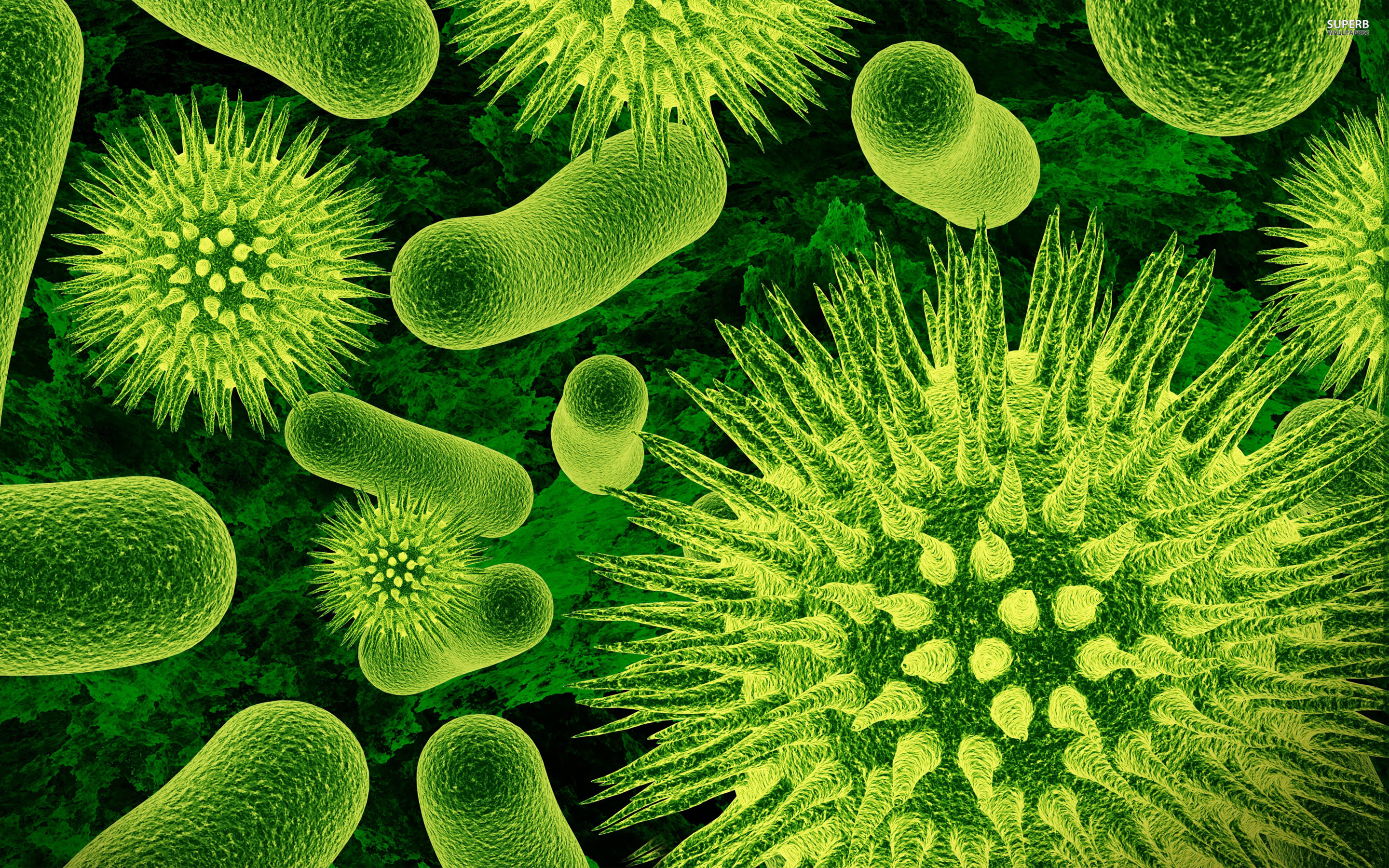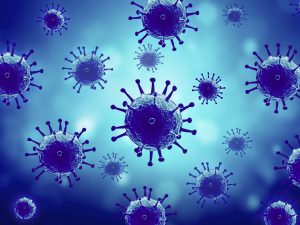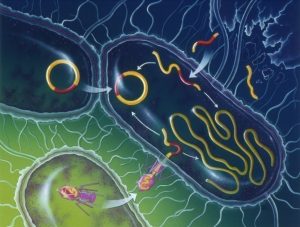
Embracing bacteria is hard. They are so little. We can’t even see them. And as Stephen Harrod Buhner says in his wonderful book Plant Intelligence and the Imaginal Realm, “We Want Braaaaains.” University of Chicago scientist James Shapiro writes that humans do not recognize bacteria as sentient. Shapiro thinks this is a mistake because bacteria are not only sentient, they have great intelligence, a shared language and a vibrant social capacity. cite
But…..but they are so little.  And they give us things: pneumonia, meningitis, food poisoning. The end of infectious disease was promised with the introduction of antibiotics in 1946. It was commonly believed that “bacteria would just blindly die off leaving us a disease-free life.” Buhner Id. Millions of pounds of antibiotics are created each year and then are excreted or thrown away. These antibiotics are not biodegradable. The Earth’s soil and water is now “saturated with several billion pounds of nonbiodegradable, often biologically unique pharmaceuticals, designed to kill bacteria.” Buhner Id.
And they give us things: pneumonia, meningitis, food poisoning. The end of infectious disease was promised with the introduction of antibiotics in 1946. It was commonly believed that “bacteria would just blindly die off leaving us a disease-free life.” Buhner Id. Millions of pounds of antibiotics are created each year and then are excreted or thrown away. These antibiotics are not biodegradable. The Earth’s soil and water is now “saturated with several billion pounds of nonbiodegradable, often biologically unique pharmaceuticals, designed to kill bacteria.” Buhner Id.
The bacterial response has been powerful.
Bacteria have rearranged their core geomes. They have learned to deactivate the portion of their cell the antibiotic is supposed to destroy, They have managed to devise a way to pump the antibiotic out of their cell as fast as it comes in. They have changed their cell walls to reject antibiotics. They have even started using antibiotics as food. They communicate all changes and new techniques, not only to all other bacteria in existence, but also code the changes and pass them along to their descendants.
Apparently neural networks don’t need a spongy gray thing to work well. The deeply held human-centric belief that consciousness and intelligence exist only in a braaaaain is not only wrong but has led us into a war we might not be able to win. Infection from antibiotic-resistant bacteria is the third leading cause of death in hospitals.
In spite of this spirited defense, bacteria is not primarily a disease org anism dedicated to our destruction. Scientist Lynn Margulis says bacteria has better things to do than attack us; they are, in fact, a highly intelligent community of interactive subparts: “a global superorganism.” cite
anism dedicated to our destruction. Scientist Lynn Margulis says bacteria has better things to do than attack us; they are, in fact, a highly intelligent community of interactive subparts: “a global superorganism.” cite
A thinking community, like us. And to address our human-centricity, only 10% of bacteria are “bad” for humans, the other 90% are “good” or non-pathogenic. We host millions of them: the total weight of the bacteria in our body is about three pounds, the same as our brain. In fact, we could not live without them They help us digest food, protect us from foreign invaders on our skin, in our lungs and in our digestive organs. They fine tune our immune system. link
And perhaps, more importantly, they make chocolate. The pulp around cocoa beans is fermented by bacteria. Otherwise, cocoa bean would be inedible. And wheat is just another form of cellulose unless bacteria transforms it into protein. Unleavened wheat won’t support human life. Then there is cheese. Hundreds of forms of bacteria create hundreds of kinds of cheese. Yogurt, pickles, coffee, salami. This link is fun to read; it lists all of the bacteria we use in our food.
So there are bad dogs, mean or diseased, yet we love dogs, We embrace them. Perhaps we might look deeper, perhaps embrace the invisible (to us) world of microbes. Instead of imagining ourselves on a stage, and we are the actors; and all the rest is our backdrop.